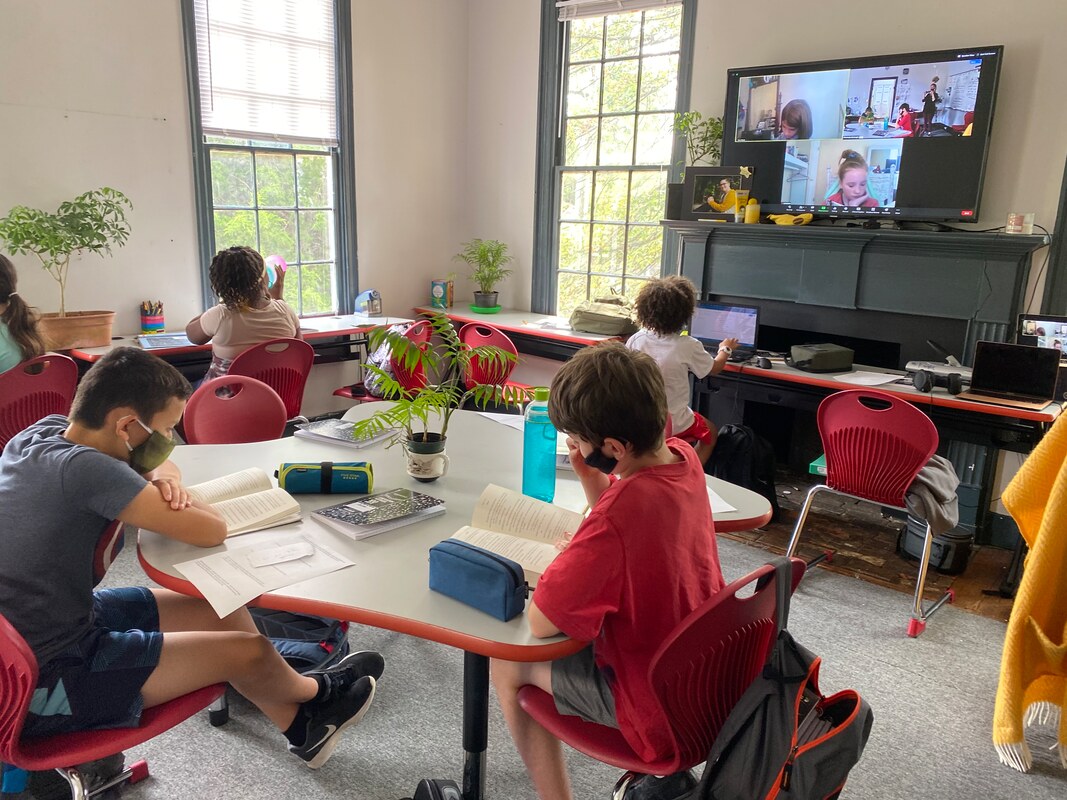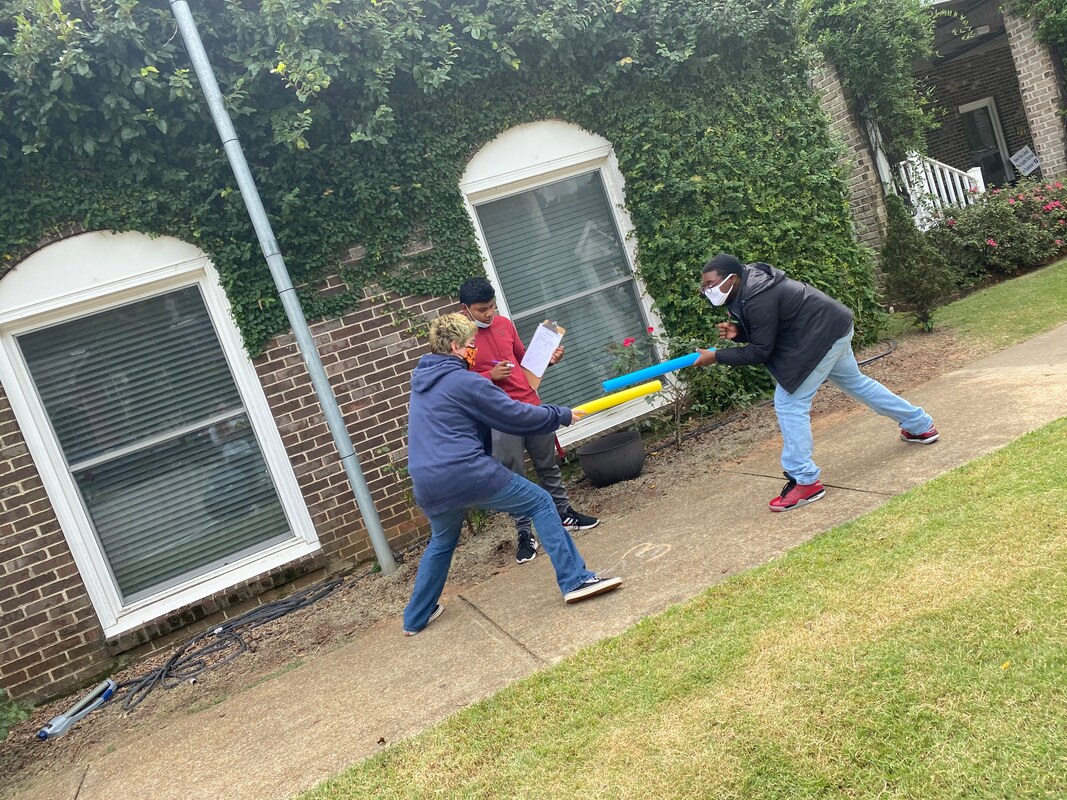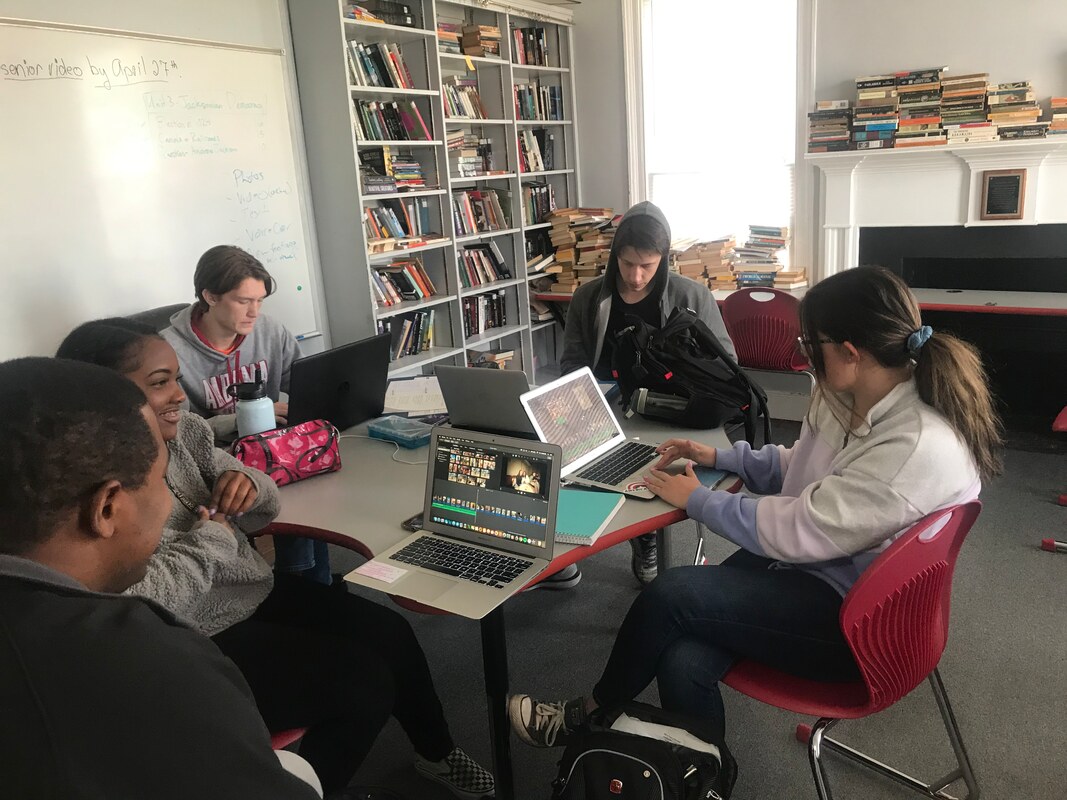The Capitol School has been providing an exceptional education to students in Tuscaloosa since 1993.
Do you and your child want the best possible education? Small classes where your child learns at his or her own pace, has an untroubled social environment, and enjoys the care and attention of engaged teachers? Capitol School is the right choice for parents and their children looking for an alternative to large-classroom instruction. For decades, Capitol has provided exceptional individual and small group instruction to students of all abilities and interests. In a safe and supportive environment, students engage with the latest innovative educational practices, excelling in English, math, science, world languages, physical education, and social studies. With elective classes in subjects such as art, music, robotics, photography, drama, rhetoric and debate, computer science, and creative writing, your child will be fulfilled and enjoy becoming the very best they can be.
What is important to you and to your child is important for us at the Capitol School.
The Capitol School is accredited by the national accrediting agency AdvancedEd (formerly named Southern Association of Colleges and Schools). Our school's national accreditation review earned an IEQ of 371 out of 400 maximum points, giving us the highest to date of any private school in Alabama and scoring second only to one public school system — a much larger school with 200% more faculty
The Upper School at the Capitol School is unique for a number of reasons. Following the model of our elementary multi-age clusters, Upper School students are grouped into age-based cohorts generally equivalent to grades 6 and 7, 8 and 9, and then 10 through 12. Thus, each student may move ahead at his or her own pace without a “glass ceiling.” Each cohort offers small-group and individualized instruction with specific opportunities for students that guide them toward college and career-readiness.
Ages 11-13: The program for this cohort provides a transition into the sorts of higher-level academic practices across the curriculum that students will need for conducting research, analyzing text and data, organizing notes, writing with clarity and purpose, and presenting their ideas with confidence. Of equal importance during these years is the development of interpersonal and intrapersonal intelligences. We spend a lot of time guiding students individually and collectively toward a greater understanding of social responsibility.
Ages 13-15: Students in this cohort pursue mastery learning of the content for 8th and 9th grades. They will expand their reading, pursue community service-learning opportunities, and turn their attention to developing year(s)-long Independent Study projects alongside faculty mentors. At the beginning of the year, students spend time completing inventories and discussions to explore their interests. Once they decide upon an area of focus, students assemble a small committee of faculty and at least one member of the community to serve as resources and mentors as the students develop their projects.
Because this age group bridges the traditional 8th and 9th grade years, we take as our model the hybrid undergraduate/graduate courses at the university in which the advanced students fulfill additional requirements -- for example, extended length and depth of essays, added dimensions to projects, and additional readings -- in order to receive appropriate credit on their 9th grade high school transcripts.
Ages 15-18: In addition to their regular classes and Independent Study project, students in this final cohort choose one of two paths to college and career readiness: Early College at The University of Alabama or career and technical courses and Shelton State. The State of Alabama requires 24 credits for graduation. Faculty will consider credit for rigorous summer classes and experiences. In addition, a flexible schedule can be provided to allow time for students to pursue passions such as dance, music, drama, and other opportunities such as internships. All high school students at Capitol take the WorkKeys Ready to Work program in order to be competent professionals and to have summer internship opportunities with our community partners.
The Capitol School is an opportunity, a first big step in a successful career and life for your child. At Capitol, students thrive, finding their own capacity for excellence in a caring, individual-focused learning environment. Parents have found our curriculum innovative and our faculty responsive to the needs of their children. We want what you want -- to see your child grow into a confident and purposeful, engaged and insightful, ambitious and generous adult.
Do you and your child want the best possible education? Small classes where your child learns at his or her own pace, has an untroubled social environment, and enjoys the care and attention of engaged teachers? Capitol School is the right choice for parents and their children looking for an alternative to large-classroom instruction. For decades, Capitol has provided exceptional individual and small group instruction to students of all abilities and interests. In a safe and supportive environment, students engage with the latest innovative educational practices, excelling in English, math, science, world languages, physical education, and social studies. With elective classes in subjects such as art, music, robotics, photography, drama, rhetoric and debate, computer science, and creative writing, your child will be fulfilled and enjoy becoming the very best they can be.
What is important to you and to your child is important for us at the Capitol School.
The Capitol School is accredited by the national accrediting agency AdvancedEd (formerly named Southern Association of Colleges and Schools). Our school's national accreditation review earned an IEQ of 371 out of 400 maximum points, giving us the highest to date of any private school in Alabama and scoring second only to one public school system — a much larger school with 200% more faculty
The Upper School at the Capitol School is unique for a number of reasons. Following the model of our elementary multi-age clusters, Upper School students are grouped into age-based cohorts generally equivalent to grades 6 and 7, 8 and 9, and then 10 through 12. Thus, each student may move ahead at his or her own pace without a “glass ceiling.” Each cohort offers small-group and individualized instruction with specific opportunities for students that guide them toward college and career-readiness.
Ages 11-13: The program for this cohort provides a transition into the sorts of higher-level academic practices across the curriculum that students will need for conducting research, analyzing text and data, organizing notes, writing with clarity and purpose, and presenting their ideas with confidence. Of equal importance during these years is the development of interpersonal and intrapersonal intelligences. We spend a lot of time guiding students individually and collectively toward a greater understanding of social responsibility.
Ages 13-15: Students in this cohort pursue mastery learning of the content for 8th and 9th grades. They will expand their reading, pursue community service-learning opportunities, and turn their attention to developing year(s)-long Independent Study projects alongside faculty mentors. At the beginning of the year, students spend time completing inventories and discussions to explore their interests. Once they decide upon an area of focus, students assemble a small committee of faculty and at least one member of the community to serve as resources and mentors as the students develop their projects.
Because this age group bridges the traditional 8th and 9th grade years, we take as our model the hybrid undergraduate/graduate courses at the university in which the advanced students fulfill additional requirements -- for example, extended length and depth of essays, added dimensions to projects, and additional readings -- in order to receive appropriate credit on their 9th grade high school transcripts.
Ages 15-18: In addition to their regular classes and Independent Study project, students in this final cohort choose one of two paths to college and career readiness: Early College at The University of Alabama or career and technical courses and Shelton State. The State of Alabama requires 24 credits for graduation. Faculty will consider credit for rigorous summer classes and experiences. In addition, a flexible schedule can be provided to allow time for students to pursue passions such as dance, music, drama, and other opportunities such as internships. All high school students at Capitol take the WorkKeys Ready to Work program in order to be competent professionals and to have summer internship opportunities with our community partners.
The Capitol School is an opportunity, a first big step in a successful career and life for your child. At Capitol, students thrive, finding their own capacity for excellence in a caring, individual-focused learning environment. Parents have found our curriculum innovative and our faculty responsive to the needs of their children. We want what you want -- to see your child grow into a confident and purposeful, engaged and insightful, ambitious and generous adult.



